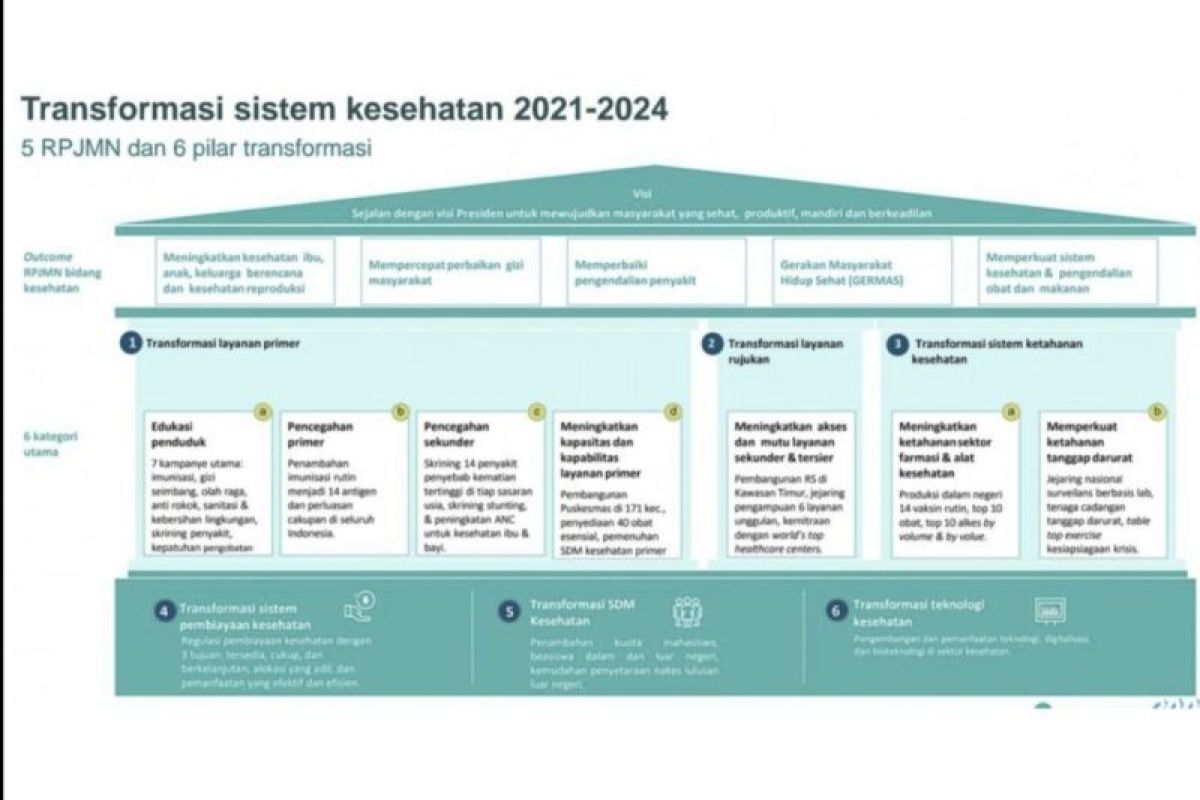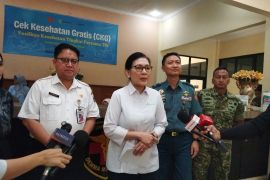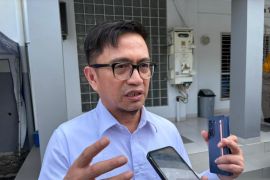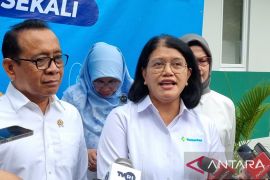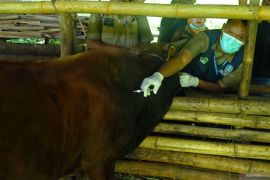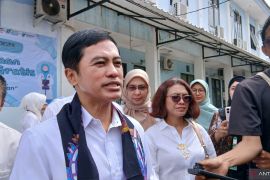"The health transformations showed rapid progress during its journey," Head of the ministry's Public Services and Communication Bureau Siti Nadia Tarmizi said in Jakarta on Saturday.
She informed that under the primary services transformation — a promotive and preventive health service effort — blood-added tablets were distributed to 2.23 million females.
Further, 75,654 pregnant women with chronic energy deficiency were treated, more than 1.01 million children with stunting were handled, and the national stunting rate was brought down to 21.06 percent in 2022 from 24.4 percent the previous year.
In addition, Tarmizi said the number of mothers who carried out exclusive breastfeeding reached 441,051 and the number of pregnant women who underwent six check-ups reached 1.76 million. The growth and development of over 2.07 million babies born at health facilities and 8.61 million under-five children were also monitored.
She informed that the number of newborns screened for congenital hypothyroidism was recorded at 101,797 after the government revitalized 300 integrated health posts (posyandus) and equipped them with cadres and medical devices. The ministry also added 3 types of routine immunizations for children, bringing the number of vaccines from 11 to 14.
According to Tarmizi, under the referral service transformation, which aimed to ensure equal access to priority services for heart disease, stroke, cancer, and kidney, 15 primary hospitals were constructed to strengthen referral services in remote areas.
In addition, 16 vertical hospitals collaborated with international institutions or hospitals to provide superior services, she added.
"The Health Ministry is building four new vertical hospitals in Surabaya, Kupang, Makassar, and Jayapura," she informed.
Under the national defense system transformation, the government pursued innovation in domestic medical devices and guaranteed the availability of domestic products through the procurement of goods and services, with eight out of 10 medicinal raw materials produced domestically and 38 pharmaceutical industries assisted in switching to domestic sources for five medicinal raw materials, she said.
Medical device transactions through e-catalogs increased 3.8 times, the antigens for eight out of the 14 routine immunizations, including the COVID-19 vaccine, were produced domestically, and mastery was gained in developing inactivated virus, mRNA/nucleic acid-based, and viral vector-based vaccines.
Under the health financing system transformation, the rates of the National Health Insurance Program (JKN) were adjusted through the Regulation of the Minister of Health Number 3 of 2023.
Tarmizi said the ministry also launched Guidelines for Health Technology Assessment (HTA) and monitored the implementation of HTA recommendations.
"We also encouraged the preparation of National Health Account (NHA) reports to sharpen planning and interventions for health financing. NHA will be accompanied by the preparation of the District Health Account (DHA) and Provincial Health Account (PHA), which has reached more than 90 districts/cities in 19 provinces," she disclosed.
Meanwhile, as part of the health human resources transformation, 91 percent of community health services (puskesmas) were equipped with at least 1 doctor, 61.5 percent of regional hospitals were equipped with 7 types of specialist doctors, and 236,075 registration certificates (STRs) for medical personnel were issued, Tarmizi said.
In addition, she informed that 36,797 health human resources participated in the health resilience competency improvement. The ministry also supported 1,040 specialists, sub-specialists, and dental specialists through education scholarships.
Finally, the health technology transformation was carried out with the launch of the SatuSehat platform, which ensures the health data ecosystem adheres to international standards.
"Currently, 11,864 health facilities are ready to be integrated with SatuSehat, which have received ISO/ACE 27001-2023 certificates recognized by 100 countries," she said.
According to her, the SatuSehat platform has been downloaded by more than 104 million users and follows World Health Organization (WHO) standards in health features and a global health information system.
The ministry also launched the Biomedical & Genome Science Initiative BGS (BGSi) for precise disease detection and prediction, Tarmizi added.
"Recognition of Indonesia's initiative on the Federated Public Trust Directory adopted by the G20 and the implementation of health documents digitalization has also begun to be carried out by the WHO," she said.
Related news: Minister Sadikin conveys Indonesia's health agendas at G20 India
Related news: Govt allocates Rp90 trillion for health transformation
Translator: Andi Firdaus, Resinta S
Editor: Rahmad Nasution
Copyright © ANTARA 2023
